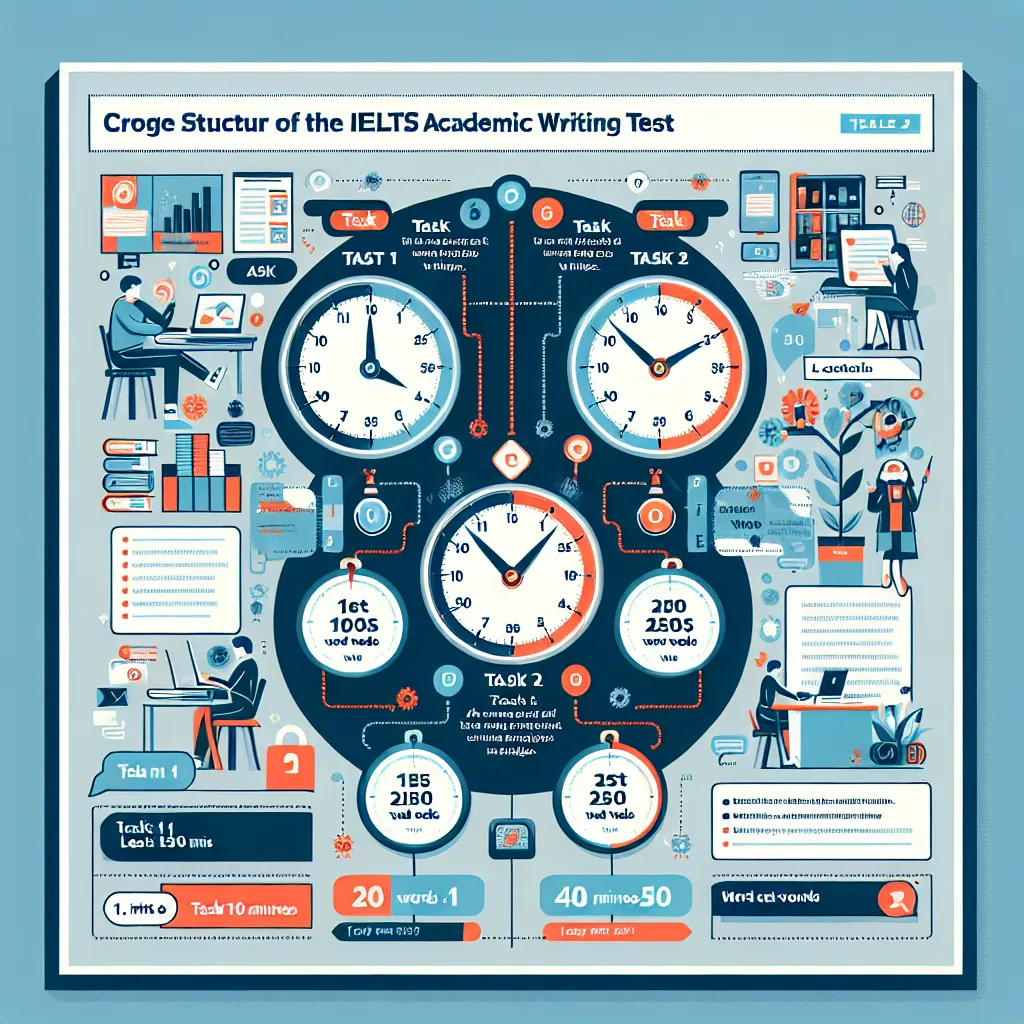Are you preparing for the IELTS Academic exam? Understanding the IELTS Academic Writing test format is crucial for your success. This comprehensive guide will walk you through everything you need to know about the structure, requirements, and strategies for tackling this challenging component of the IELTS test.
Overview of the IELTS Academic Writing Test
The IELTS Academic Writing test is designed to assess your ability to write in a clear, organized, and academic manner. It consists of two tasks, which you must complete within 60 minutes. This section of the IELTS exam evaluates your capacity to present information, construct arguments, and analyze data in written English.

Task 1: Data Analysis and Description
In Task 1, you will be presented with visual information in the form of a graph, table, chart, or diagram. Your job is to summarize, describe, or explain the information in your own words. Here are the key points to remember:
- Time allocation: 20 minutes
- Minimum word count: 150 words
- Types of visual information: Line graphs, bar charts, pie charts, tables, processes, or maps
- Focus: Describing main trends, making comparisons, and highlighting significant data
Task 2: Essay Writing
Task 2 requires you to write an essay in response to a point of view, argument, or problem. This task assesses your ability to present and justify an opinion, discuss abstract ideas, and evaluate evidence. Key details include:
- Time allocation: 40 minutes
- Minimum word count: 250 words
- Essay types: Argumentative, discursive, or narrative
- Focus: Addressing all parts of the question, organizing ideas coherently, and using appropriate language
Understanding the Scoring Criteria
To excel in the IELTS Academic Writing test, it’s essential to understand the scoring criteria. Examiners evaluate your performance based on four key areas:
- Task Achievement (Task 1) / Task Response (Task 2)
- Coherence and Cohesion
- Lexical Resource
- Grammatical Range and Accuracy
Each of these criteria contributes to your overall band score for the Writing section.
Strategies for Success in IELTS Academic Writing
Time Management
Effective time management is crucial for success in the IELTS Academic Writing test. Here’s a suggested time breakdown:
- Task 1: 20 minutes (including 5 minutes for planning)
- Task 2: 40 minutes (including 10 minutes for planning)
Remember to allocate time for proofreading at the end of each task.
Task 1 Approach
To excel in Task 1, follow these steps:
- Analyze the visual information carefully
- Identify the main trends or significant features
- Plan your response, organizing key points
- Write a clear introduction, body paragraphs, and a brief conclusion
- Use appropriate linking words to ensure coherence
Task 2 Approach
For Task 2, consider this strategy:
- Carefully read and analyze the question
- Plan your essay structure, including introduction, body paragraphs, and conclusion
- Write a clear thesis statement in your introduction
- Develop your arguments with relevant examples and explanations
- Use a variety of sentence structures and academic vocabulary
- Conclude by summarizing your main points and restating your position
Common Pitfalls to Avoid
Be aware of these common mistakes in the IELTS Academic Writing test:
- Not addressing all parts of the question
- Failing to meet the minimum word count
- Using informal language or contractions
- Not providing enough detail or examples to support your ideas
- Poor time management, leading to incomplete responses
- Neglecting to proofread for grammar and spelling errors
Practice and Preparation Tips
To improve your performance in the IELTS Academic Writing test, consider these tips:
- Practice regularly with past IELTS exam questions
- Time yourself to improve your speed and efficiency
- Read academic articles to expand your vocabulary and familiarize yourself with formal writing styles
- Seek feedback from a teacher or qualified IELTS tutor
- Review model answers to understand what examiners are looking for
- Focus on improving your weakest areas based on practice test results
Conclusion
Understanding the IELTS Academic Writing test format is the first step towards achieving your desired band score. By familiarizing yourself with the task requirements, scoring criteria, and effective strategies, you can approach the test with confidence. Remember to practice regularly, manage your time wisely, and focus on developing your academic writing skills. With dedication and the right approach, you can excel in this challenging component of the IELTS exam.
Are you ready to take on the IELTS Academic Writing test? Share your thoughts or questions in the comments below, and don’t forget to check out our other IELTS preparation resources to boost your performance across all test sections.